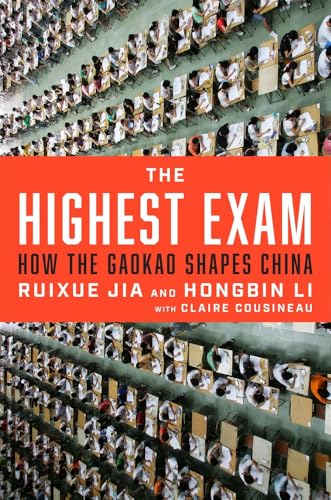
How the Gaokao Shapes China
Ruixue Jia / Hongbin Li …
简介
Combining personal narratives with decades of research, a vivid account of how the gaokao—China’s high-stakes college admissions test—shapes that society and influences education debates in the United States.
Each year, more than ten million students across China pin their hopes on the gaokao, the nationwide college entrance exam. Unlike in the United States, where standardized tests are just one factor, in China college admission is determined entirely by gaokao performance. It is no wonder the test has become a national obsession.
Drawing on extensive surveys, historical research, and economic analysis, and informed by Ruixue Jia and Hongbin Li’s own experiences of the gaokao gauntlet, The Highest Exam reveals how China’s education system functions as a centralized tournament. It explains why preparation for the gaokao begins even before first grade—and why, given its importance for upward mobility, Chinese families are behaving rationally when they devote immense quantities of money and effort to acing the test. It shows how the exam system serves the needs of the Chinese Communist Party and drives much of the country’s economic growth. And it examines the gaokao’s far-reaching effects on China’s society, as the exam’s promise of meritocracy encourages citizens to focus on individual ability at the expense of considering socioeconomic inequalities.
What’s more, as the book makes clear, the gaokao is now also shaping debates around education in the United States. As Chinese-American families bring the expectations of the highest exam with them, their calls for objective, transparent metrics in the education system increasingly clash with the more holistic measures of achievement used by American schools and universities.